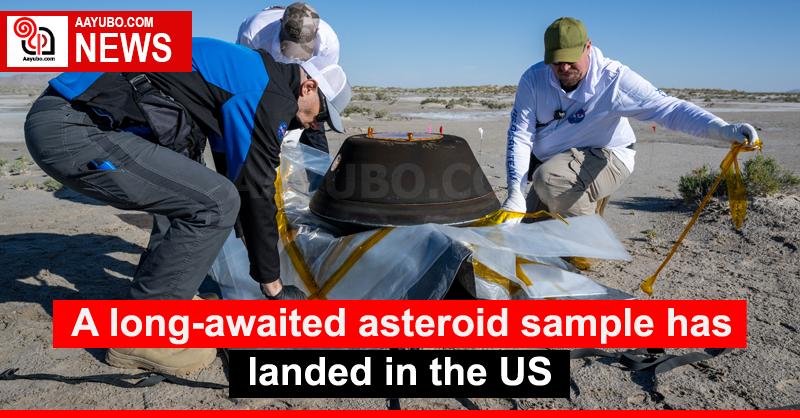A long-awaited asteroid sample has landed in the US

An asteroid sample collected by NASA has touched down on Earth, giving scientists the opportunity to learn more about the origins of the solar system and capturing a piece of a massive space rock that has a chance of colliding with our planet in the future. It’s the first time the agency has accomplished such a feat.
Seven years after launching to space, the OSIRIS-REx spacecraft flew by Earth Sunday to deliver the pristine sample from the near-Earth asteroid Bennu.
OSIRIS-REx, which stands for Origins, Spectral Interpretation, Resource Identification, Security, Regolith Explorer, lifted off in 2016 and began orbiting Bennu in 2018. The spacecraft collected the sample in 2020 and set off on its lengthy return trip to Earth in May 2021. The mission traveled 3.86 billion miles total to Bennu and back.
The spacecraft dropped the sample capsule — containing an estimated 8.8 ounces of asteroid rocks and soil — from a distance of 63,000 miles (102,000 kilometers) above Earth’s surface early Sunday, and entered the planet’s atmosphere at 10:42 a.m. ET while traveling at a speed of about 27,650 miles per hour (44,498 kilometers per hour).
Parachutes deployed to slow the capsule to a gentle touchdown at 11 miles per hour (17.7 kilometers per hour). The sample landed in the Defense Department’s Utah Test and Training Range about 10 minutes after entering the atmosphere, a few minutes ahead of schedule.
“Congratulations to the OSIRIS-REx team. You did it,” said NASA administrator Bill Nelson. “It brought something extraordinary, the largest asteroid sample ever received on Earth. This mission proves that NASA does big things, things that inspire us, things that unite us. It wasn’t mission impossible. It was the impossible that became possible.”
OSIRIS-REx is continuing its tour of the solar system — the spacecraft has already set off to capture a detailed look at a different asteroid named Apophis.
The mission now has a new name: OSIRIS-APEX, for Origins, Spectral Interpretation, Resource Identification, Security-APophis EXplorer.
292 Views







Comments